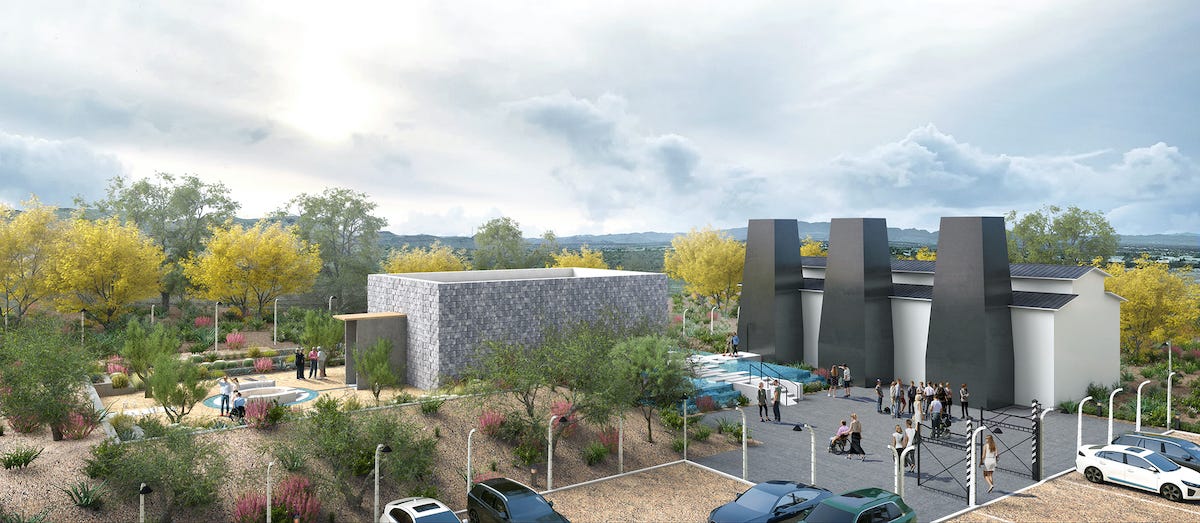This artist envisions an educational and art center devoted to ending worldwide genocides, and he wants to build it in Asheville
The Genos Center is the brainchild of artist, photographer, inventor Doug Busch

This story sponsored by Citizens Fuel Co., a family-owned Asheville company.
Asheville could be home to a $30 million art and educational center devoted to ending worldwide genocides, says the California-based artist who conceptualized the center.
Doug Busch, a photographer, architectural designer, inventor and philanthropist, told told me during a recent phone conversation that he’s planning a visit next month to assess whether there’s community support for the Genos Center.
The project, which includes a multicultural art gallery, non-denominational chapel and gardens, requires a 10-acre site. Fundraising has begun, with Busch and the Genos Center Foundation agreeing to an initial $1 million commitment. The organization plans to donate the finished center, as well as an endowment, to an institution, foundation or city. The endowment would go to pay for maintenance, staffing, taxes, maintaining evolving exhibitions and the gardens.
Busch, who told me he’s visited Western North Carolina and has family in Lake Lure, says Asheville’s progressive community, climate and tourism all work in the city’s favor.
“Asheville just seemed like the perfect community for this,” he says.

Busch has a 50-year career as a photographer, artist, architectural designer and inventor.
He graduated from the University of Illinois in 1973 and moved to California, where he worked as an assistant to photographers Morley Baer and Al Weber. He also helped photographer Ansel Adams, wash prints for his Portfolio VI. Busch became known for using (and building) what he calls the world’s largest portable view cameras to produce large photographic contact prints. His work is part of collections at the J. Paul Getty Museum, the Smithsonian Institution, the Los Angeles County Museum of Art and the Museum of Photographic Arts in San Diego, Calif. He went on to help aspiring photographers by offering grants through his No-Strings Foundation.
Busch has also been interested in sustainable architectural work and drought-tolerant landscape designs, which led to work throughout California. He launched a company devoted to building homes for people who suffer from environmental allergies.
Now Busch is focusing his energy on the Genos Center, which he says he first envisioned more than 15 years ago. He says he wants to raise awareness of worldwide genocides, and promote healing in the aftermath of tragedy that he considers overlooked.
“What you don’t know, you fear. So how do you stop it? You bring it into the light. I’m saying ‘here is the light,’ and I want to help people look at things in a new way,” Busch says.
That can all be done through the visceral experiences that art and contemplative spaces can inspire, Busch adds. Different international curators would bring their own unique visions to shed light on atrocities, all with the goal of dispelling hate and ignorance, he says.

A building with an industrial interior that could be molded to house a variety of installations would be home to the multicultural art gallery, Busch says. Visitors would cross over a water feature - “water is cleansing,” he notes - to enter a nondenominational chapel where they could “sit and absorb and take what they need” from what they’ve encountered, he says. From there, visitors could walk to a sunken garden that serves as a community gathering space.
Is it an ambitious undertaking? Yes, says Busch. “But you have to start somewhere.
Thanks for reading,
-j




Wow wouldn’t this be a fantastic addition to Asheville. And it’s not a brewery. Yay!